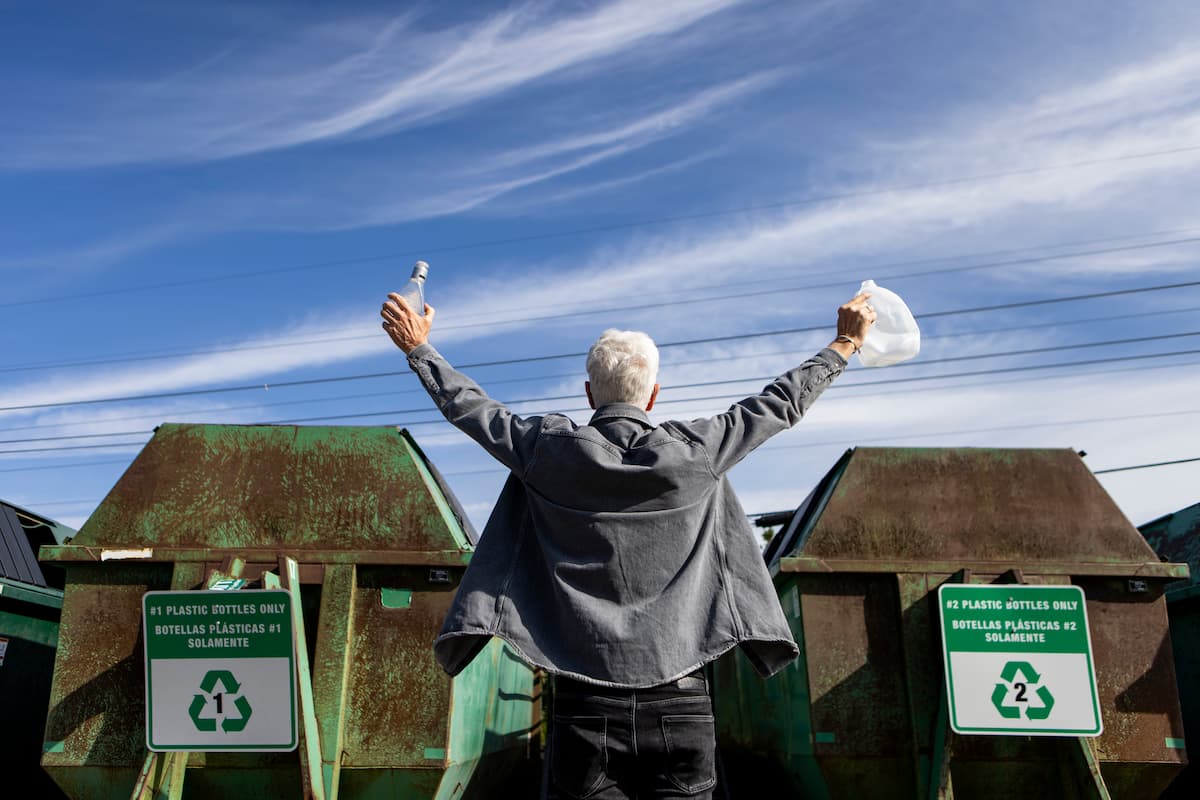
Dear Eartha, I have recently heard of extended producer responsibility in the world of recycling. What exactly does this mean?
For the state of Colorado, extended producer responsibility is happening thanks to HB22-1355, a bill that requires companies selling packaging and printed paper into the state to fund and manage a coordinated statewide recycling system for all residents. Extended producer responsibility legislation is becoming more common in places such as the European Union, Japan and even the United States. Several states already have producer responsibility established for products such as batteries, carpeting and paint (which we’ve had in Colorado since 2015).
Colorado’s new bill requires producers to take responsibility for the packaging of their products. This includes creating the statewide recycling system for all manner of consumer-facing packaging: cardboard, paper, glass, metal and plastics. With producers covering those recycling costs, local governments (and their residents) stand to save on recycling costs. And, as outlined in the actual bill language, recycling will become just as convenient as trash. Together, it’s all expected to result in equitable recycling access and improved recycling rates.
So, how do we even get to a statewide recycling system for the many types of packaging we see in Colorado? Conveniently, the bill spells it all out. It requires that producers join a producer responsibility organization or develop an individual company plan to fund and manage the recycling system.
What is the producer responsibility organization and how does it work?
First, let’s talk producers. In many cases the producer is the company behind the brand name. For example, the company behind your favorite cereal would join the producer responsibility organization and pay fees to fund recycling the plastic bag and cardboard box in which their cereal is packaged. For magazines, the publisher is the producer. And for unmarked products or imported goods, the manufacturer or the importer would be considered the producer. Consider a toy truck sold online by a third-party seller: both the toy company which packages the truck and the seller who packages the box for shipping would be considered producers.
Now, back to the producer responsibility organization. In May, the Colorado Department of Public Health and Environment selected Circular Action Alliance as the nonprofit producer responsibility organization that will fund and manage Colorado’s producer responsibility program. Each producer pays fees, which the producer responsibility organization uses to manage the recycling systems for packaging. Fees are tiered based on the sustainability of the packaging. So, for example, a producer who packages their product in non-recyclable plastic would pay much higher fees than a producer who uses recycled cardboard for packaging. This tiered pricing structure incentivizes producers to use more sustainable packaging over time.
With so many details (it is a 51-page bill!) you may be wondering who’s keeping the producer responsibility organization, and the whole program, in check. A 13-member advisory board made up of individuals with expertise in recycling services in different regions of the state and the Colorado Department of Public Health and Environment must approve the producer responsibility organization’s plan for creating and managing the recycling system.

Where are we today?
Currently, the producer responsibility organization is finalizing a needs assessment based on input from producers, town and county governments, waste haulers, recycling facilities and more. The goal is to identify infrastructure and services required to create statewide recycling systems for packaging. The producer responsibility organization will use the learnings from the needs assessment and continue working with the advisory board and Colorado Department of Public Health and Environment to develop the program. With multiple steps required, and several years needed to scale up the statewide program, producer responsibility is expected to be launched by early 2026.
In the meantime, we can all work together to address waste concerns here in Summit County. If you haven’t yet, enroll in the free composting program to help divert food scraps from the landfill. Take the time to understand what’s accepted for local recycling and, once you understand the guidelines, help a friend improve their recycling. Finally, look to the High Country Conservation Center for understanding how you can advocate for sensible recycling systems at the state and local levels. From major companies and large producers to local consumers like me and you, we all have an important role to play in improving our local community.
